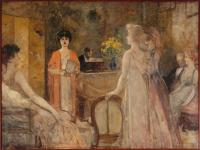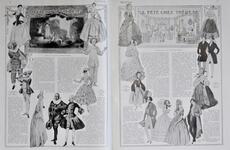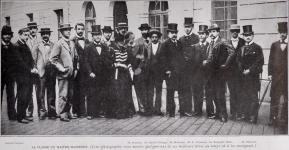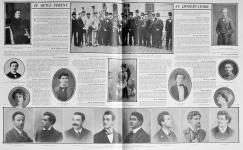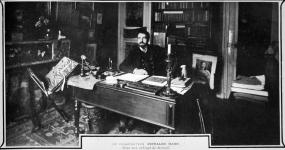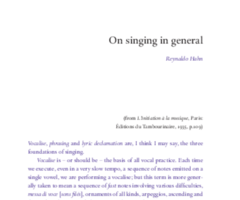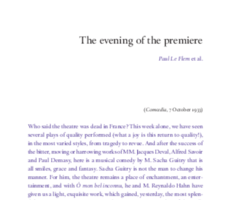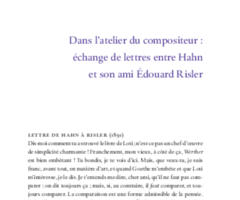
Reynaldo HAHN
1874 - 1947
Conductor, Composer
Born in Caracas, Hahn settled in Paris in 1878. His family, who came from the Venezuelan business class, had numerous connections, which facilitated his entry into high society. Admitted into the Paris Conservatoire in 1885, he won few prizes but met the pianist Risler—a friend with whom he maintained a lifelong correspondence. His early musical successes and his training as a composer took place outside the Paris institutions: a private pupil of Jules Massenet, Hahn made a name for himself in the aristocratic salons (including the one held by Princess Mathilde) by performing the art songs he composed, particularly Les Chansons grises (setting texts by Verlaine) and Les Études latines. His success enabled him to meet Stéphane Mallarmé, Edmond de Goncourt, Sarah Bernhardt and Marcel Proust, with whom he became lovers, then close friends. Having taken French citizenship in 1912, he asked to be sent to the front in 1914, then worked in the French War Ministry (1916). Although he had won great acclaim at the Opéra-Comique in the early part of the century (L’Île du rêve in 1900 and La Carmélite in 1902), his output during the interwar period tended more towards operetta—Ciboulette (1923) and Malvina (1935)—and musical theatre—including Mozart (1925) for Yvonne Printemps and Ô mon bel inconnu (1933) for Arletty. Reynaldo Hahn received the institutional seal of approval after 1945: he was appointed a member of the Académie des Beaux-Arts and director of the Opéra de Paris (1945-1946).
Focus
Focus
La mélodie française
Documents and archives

Press illustration, Picture of a scene, Photograph
Emma Calvé dans La Carmélite (Hahn) : dernier acte
Scientific publications
Publication
Reynaldo Hahn. Ô mon bel inconnu
Publication


